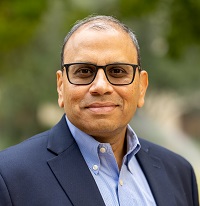Sustainability: the journey and the goal

The final episode in the sustainability podcast series continues the discussion with Rahul Garg, VP of Industrial Machinery at Siemens Digital Industries Software and Eryn Devola, Head of Sustainability at Siemens. In the previous episode, they covered optimizing for sustainability to ensure optimum machine-sustainable performance.

Taking the sustainable journey
In this final episode, Eryn and Rahul discuss the challenges of the sustainability journey. Eryn states that it’s not a path where a few people must do it perfectly, but it requires everyone to do it imperfectly. In other words, start it and get it going. So, it’s about something other than a company hiring a few sustainability experts. Instead, it’s infusing sustainability considerations into every role of an organization, according to Eryn.
Indeed, it’s vital to have experts on metals or polymers when looking at materials and understanding their impacts. However, it’s also necessary to have designers who understand balancing water usage while also comprehending production. It is essential to have a core technical or business-focused skill set to minimize energy usage and then apply sustainability principles and considerations. It is a necessary element of decision-making that impacts the environment regarding CO2 emissions, water usage, toxic substances, microplastics, and more. Therefore, many people can play a part in influencing sustainability. In turn, more attention is being given to governments and companies moving towards this direction with a momentum not witnessed in the past.

Sustainability’s future
The overall goal of sustainability is zero waste: zero downtime, zero harm and zero impact on the planet using low cost clean, renewable energy use. These objectives drive industries and companies towards decarbonization, energy efficiency, resource efficiency, and circularity.
Some of these attributes can provide significant competitive advantages for companies by incorporating these principles into their value proposition, giving operation profits and a more sustainable business. It results in a holistic view of new business models and markets.
According to our experts, the next generation of students and new employees may look for companies focusing on environmental impacts and sustainability as an essential element of job interest. Sustainability, for some, might be seen as an obligation and opportunity, providing a faster, more agile, and creative approach to solving multifaceted issues.
Looking at the long term for businesses
Digitalization is now a key enabler in promoting the ability to think bigger, broader, and more creatively, providing less intuitive ideas with a platform. And technology can leverage the sustainability opportunity to help comply with the application in building toward a “green” future.
Siemens is working with universities to develop a circular economy-focused certificate program with sustainability as a skill set for study topics. Academia may one day see it as part of their curriculum via an MBA program or sustainable development as a mechanical engineering program.
Sustainability is moving towards a broader approach, rather than a few experts per company or merely a bolt-on addition. It is a systems-level approach and way of thinking that extends to the value chain of a product or ecosystem of operations.
Building a quality culture in every process affects customers and thus impacts specifications, requirements documents, and execution of elements. So, this same model approach has been seen with sustainability.
Sustainability is being integrated into the heart of the organization – affecting the culture and organizational processes.
Siemens Digital Industries Software helps organizations of all sizes digitally transform using software, hardware and services from the Siemens Xcelerator business platform. Siemens’ software and the comprehensive digital twin enable companies to optimize their design, engineering and manufacturing processes to turn today’s ideas into the sustainable products of the future. From chips to entire systems, from product to process, across all industries. Siemens Digital Industries Software – Accelerating transformation.


